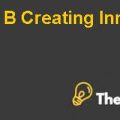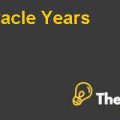
Compensation schemes:
The financial industry used many different compensation and remuneration schemes to both attract and retain employees. Common rewards included fixed pay, bonuses, stock options, guaranteed bonuses, deferred bonuses and sign-on bonuses. However, in Japan, reward systems could also be divided into practices by indigenous Japanese houses and those employed by multinationals. Japanese investment banks emphasized long-term relationship bonuses that were considered the single largest motivating factors, certainly a value pursued by most US investment houses. Employees were driven by extrinsic and intrinsic values; extrinsic values were associated with financial rewards and intrinsic values with a person’s internal belief system and value system, excluding financial rewards.
Agency Theory:
Agency theory is an outgrowth of research on risk sharing conducted by economists (Boyd, 1994; Eisenhardt, 1998, Gomez-Mejia & Balkin, 1992). The theory states that every firm comprises of a principal (organization) and an agent (a manager). The assumptions of agency theory are the agents that are motivated by self-interest, are rational actors and are risk averse. Therefore, principals can motivate agents by controlling their incentives. An agency dilemma occurs, however, when a principal is unable to adequately monitor or assess an agent’s behavior. This situation results when the agent’s task is less programmable, when accomplishing the task entails risks, or when the goals of the principal and agent are in conflict.
Here in this case, a principal is Eurocap Bank and agent are the employees working in the bank. As mentioned above, employees were not satisfied with the bonuses they received in 2001 this shows that the management of the bank was unable to monitor the behavior of employees. Dissatisfaction among employees has shown that the compensation and appraisal system by the bank is flawed. In addition to this, this also shows that performance evaluation procedure is less programmable. Furthermore, the clashes and conflicts had been evident between the principal and agent as one research analyst were threatened to resign.
Theory X:
Two theories have been suggested by McGregor that is based on various assumptions and perception related to employee motivation. The main concept and elements of both the theories are same, i.e. aligns all the factors that are related to the production of a business and it includes human resource as well for the benefit of the company. Beside this one point, the two theories are different in context.
Theory X:
The basic assumption of the theory include that the average person is more likely to be not happy with their current job and make attempts to avoid it. He or she has no such ambition related to job and thus don’t like to be accountable for anything. Further, the person would likely follow his leader rather than being a leader. Moreover, the person only cares for his goals and thus are not concerned about the company goals. Further, he is most probably got tricked by anyone and not so intelligent and thus resist any change in an organization.
As in the case of Eurocap bank, the management of the company was following hard approach to deal with employees that is based on strict rules and procedures, coercion, close and rigid supervision along with implicit threats to employees. As a result of this, employees of the bank become hostile and not willing to put extra efforts in their work. Along with this, they became rebate with their jobs and assumes that their efforts has not been correctly evaluated and appraised
Equity Theory:
An individual will consider that he dealt with reasonably in the event that he sees the degree of his inputs to his outputs to be proportional to those around him. In this way, all else being equivalent, it would be adequate for a more senior associate to get higher remuneration, since the estimation of his experience is higher. The way individuals base their experience with contentment for their occupation is to make correlations with themselves to individuals they work with.
If for instance, a worker recognizes that someone else is getting more appreciation and prizes for their commitments, actually when both have done almost the same nature of work, it would convince the employee to be disappointed. This disappointment would bring about the worker feeling as undervalued and maybe useless. This is in immediate diverge from the basic assumption behind the equity theory, the thought is to have the rewards that is, results must be specifically related to the quality and amount of the workers commitments that are inputs. In the case where both the workers were maybe remunerated the same, it would help the workforce understand that the company is reasonable, perceptive, and appreciate the extra effort put by the employees.......................................
This is just a sample partial case solution. Please place the order on the website to order your own originally done case solution.












